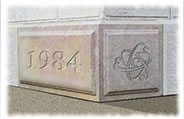The Soft Stuff is the Hard Stuff
“I have also a flower,” declared the little prince as he tried to describe his planet to a geographer.
“We do not record flowers,” said the geographer.
“Why is that? The flower is the most beautiful thing on my planet!”
“We do not record them,” said the geographer, “because they are ephemeral.”
-Excerpt from The Little Prince
by Antoine de Saint-Exupery
(1900 — 1943)
Writer, Poet and Aviator
As individuals, we tell stories to each other, and about each other as a means of gaining, sharing and transmitting insight into who we are, how we operate and what kind of people we are.
It’s the same with companies.
Culture is ephemeral — a living thing which must constantly be refreshed then passed from one person to another, often preserved in the form of stories.
“Corporation” is a generic business structure. The hottest ad agency is a corporation. So is a sleepy bank; so is a funeral home. We can usually tell the bank from the funeral home, and certainly from the ad agency — not so much by their corporate documents — but by the atmosphere, the attitude, the culture.
As managers, we often find it difficult to create the distinction between our [generic] firm and the [generic] competition. We suggest that this battle is begun and won first in the hearts and minds of the employees, then the customers; and it is won through culture, transmitted as stories. If you win the “battle” with the employees, they will bring the customers and the marketplace along.
Our first job as leaders is to establish the basics: legal form, financial assumptions, and structure — the building, desks, chairs, etc. For many classically trained managers — that’s “The Hard Stuff.” And that’s the job. Game Over!
But maybe we’re missing something…
Any new player needs to know a few things: What do we do here? What makes this place different from all others? What do we do that can’t be copied? Why should I show up smiling in the morning? Why is this company just flat out “Cool!?”
Now these items are obviously “The Soft Stuff.” But they constitute the crucial difference between an organization that has a soul, a style, a team spirit, a winning attitude …and all those other generic clones.
Here’s the formula for establishing a culture: Define, Demonstrate, Pass Along
Step One: DEFINE
In order for a culture to take form and shape, it must first be defined — laid down in the succinct forms of shell documents, but also as mission and purpose statements. At this stage, it’s still a dream, but well documented.
Step Two: DEMONSTRATE
Once defined in writing, the culture must come to life through demonstration — and be proven in practice — by senior players — converting definitions and assertions into fact. Now it’s Ephemeral, but it Lives.
Step Three: PASS ALONG
For proven Ideas and Actions to assume the stature of Cultural Cornerstones, they must become immortal in the form of stories — passed along from one generation to the next. Now it can live forever in the retelling. Most companies define their point of view, their reasons for existing in their charters — where they remain buried in the generic documents that issue from the attorneys and go directly to the secretary/treasurer for burial. Seldom read, rarely understood, they don’t rise to the level of getting anyone awake, much less excited. Many management teams let go of the reins right there, never taking the firm beyond the generic state. It’s difficult to be loyal to a corporate form.
But what if something made that form unique? Perhaps easier to get with the program? Then what if the management demonstrated the proposition — proving its usefulness? What if they showed a little style, a little fire? Now the employees have an idea, a proven process and a story to tell — and perhaps treasure. They have a shared culture. It’s ephemeral yes; but it’s also immortal.
There are manuals for policies, networks for electronic communication, and departments for sales, product development and actuarial planning. There are generally accepted rules for accounting, scheduling and ways for treating the boss and the shoeshine guy, and of course, software applications for everything. We need all that hard stuff to set us up! But to set us apart, it’s all about ephemera — culture and stories.
The Big Lesson here, is that the Soft Stuff is the Hard Stuff! Pass it On!
Thanks for being along on the journey this year! We’re going dark to spend some time away from the office.
Look for Cornerstones in your In Box in mid-January!
Subscribe to our Newsletter


